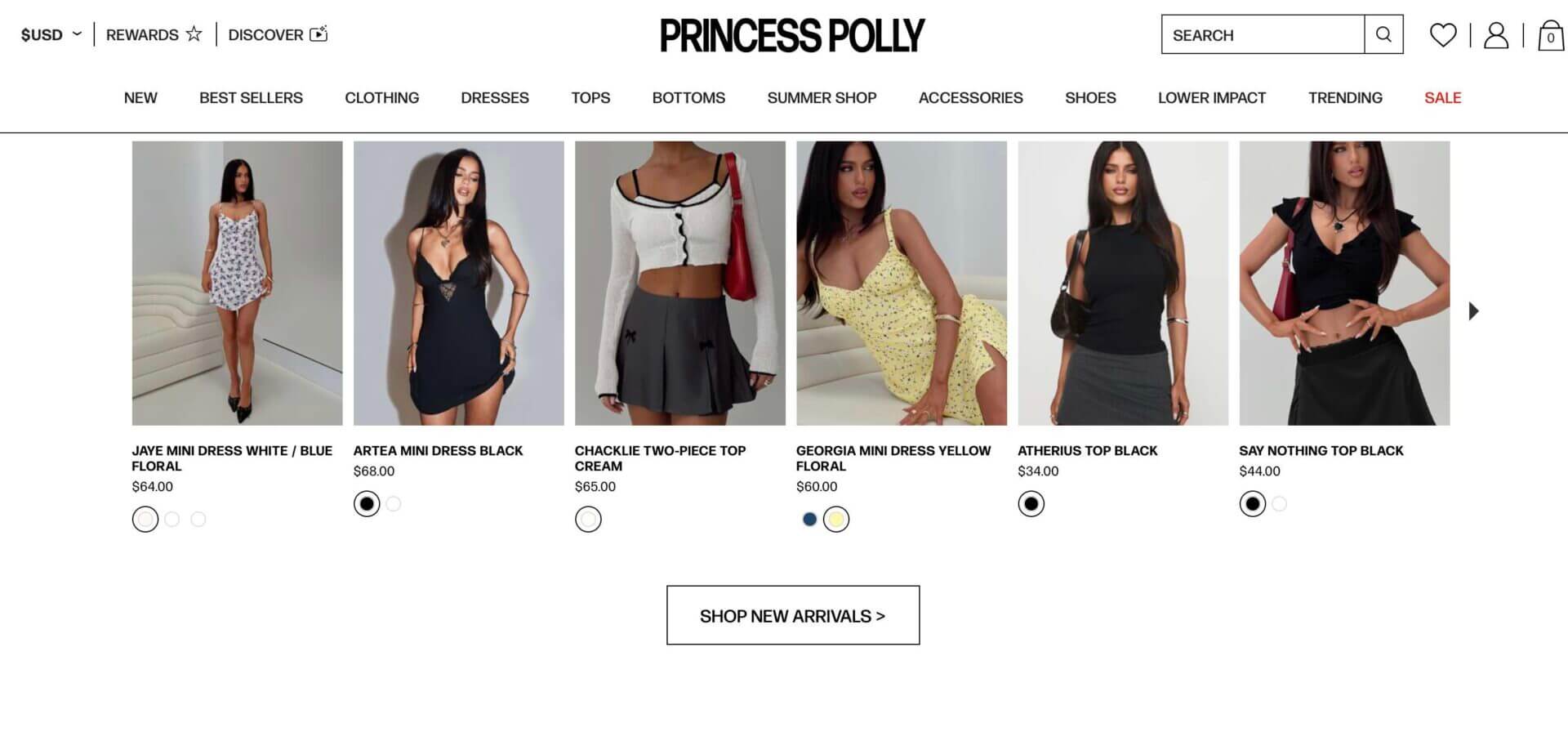Is Princess Polly Fast Fashion? How Sustainable Is This Brand?

Understanding Princess Polly: A Closer Look at Their Claims and Practices
Princess Polly is an Australian online fashion boutique that has positioned itself as a brand focused on bringing the latest trends to everyday consumers. Since its inception in 2010, the company has expanded its offerings to include a wide range of women's clothing, from casual wear to special occasion attire like prom dresses. However, the question remains: Is Princess Polly truly sustainable and ethical, or is it another fast fashion brand with greenwashing tactics?
Is Princess Polly Fast Fashion?
Without a doubt, Princess Polly operates as a fast fashion brand. Its business model revolves around producing trendy clothes quickly and in large quantities. While the company claims to be committed to making on-trend fashion sustainable, this statement is often seen as contradictory given the nature of fast fashion. The industry is known for its rapid turnover of styles, which leads to overproduction and the creation of low-quality, disposable garments. This approach is inherently unsustainable.
Despite their claims, Princess Polly seems hesitant to fully acknowledge their role in the fast fashion industry. Instead, they focus on their mission to make fashion more sustainable, which raises questions about their true intentions.
Environmental Impact: Materials and Sustainability Goals
One of the key areas of concern is the materials used by Princess Polly. The company states that 30% of their new arrivals are made with lower environmental impact materials, aiming to increase this to 60% by 2025 and 100% as soon as possible. However, these goals lack clarity. Without knowing what percentage of their total stock this represents, it's difficult to assess the real impact of these changes.
Additionally, Princess Polly offers a lower-impact range, but this is often seen as a greenwashing tactic. By highlighting a small portion of their products as sustainable, they may be misleading customers into thinking the entire brand is eco-friendly.
Carbon Neutrality and Recycling Efforts
Princess Polly has set a goal to achieve carbon neutrality by 2030, which is a positive step forward. They have taken measures to reduce the carbon footprint of their products and plan to offset any remaining emissions. However, there is no mention of a clothing recycling program, which is a significant oversight. The absence of such a program suggests that the company is not invested in creating durable, long-lasting garments that can be reused or repaired.
Ethical Considerations: Labor Practices and Transparency
Princess Polly subcontracts much of its labor, which raises concerns about the working conditions of its garment makers. While the company publishes some information about its factories, including audit details and worker demographics, the transparency is limited. Tier one and two factories are traced, but the data for tiers three through five is vague and insufficient.
The company also claims to be moving toward becoming a completely vegan business by 2024, but there is no official update on this progress. Furthermore, while they have a policy aligned with the Five Freedoms of animal welfare, the remaining 1% of non-vegan products still needs to be addressed.
Sustainability Rating and Overall Performance
When evaluating Princess Polly’s sustainability efforts, the results are mixed. The company scores poorly in transparency, fair labor practices, and diversity, equity, and inclusion. While they have made some positive steps, such as using compostable packaging and reducing landfill waste, these efforts are overshadowed by their reliance on fast fashion practices.
Princess Polly received B Corp certification in 2025, but this has raised concerns among critics. The certification is seen as a potential dilution of standards, especially for a brand that continues to produce large volumes of fast fashion items.
Ethical Alternatives to Princess Polly
For those seeking more ethical and sustainable alternatives, several brands stand out:
- Outerknown – Offers a wide range of ethically produced clothing, with a focus on preferred fabrics and a pre-owned program.
- Whimsy + Row – Emphasizes local production and a waitlist model to combat overproduction.
- Kotn – Known for its commitment to fair wages, traceability, and community investment.
These brands provide a more transparent and responsible approach to fashion, making them ideal choices for conscious consumers.
Conclusion
While Princess Polly has made some strides in sustainability, its overall performance falls short of what is expected from an ethical and environmentally responsible brand. The company must address its reliance on fast fashion, improve transparency, and take more meaningful action to support fair labor practices and environmental sustainability. For now, it remains a brand that has a long way to go before it can be considered truly sustainable.